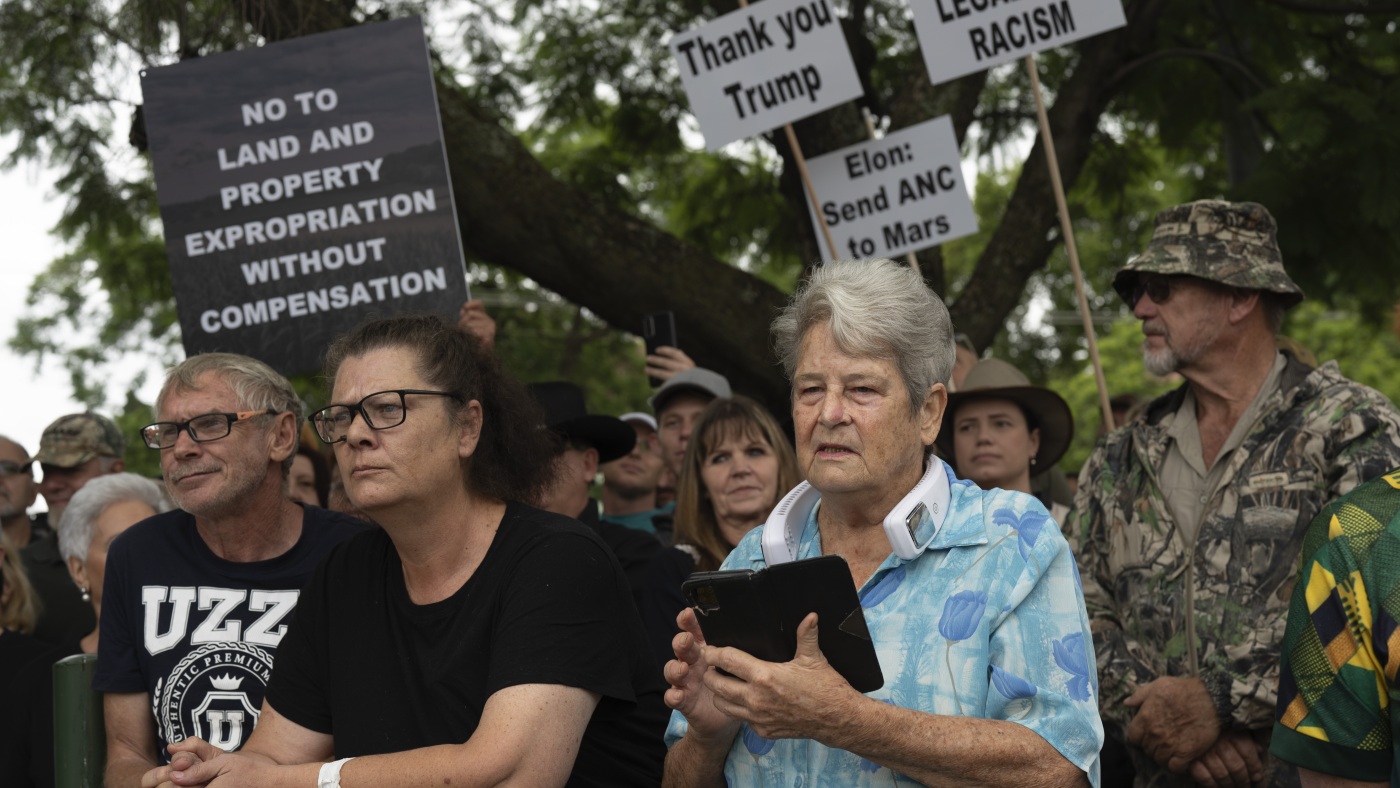Introduction
In a move that has stirred both support and condemnation, the first group of white South African Afrikaners has arrived in the U.S. as refugees under the Trump administration. This unprecedented decision, formalized through an executive order, has ignited a firestorm of reactions and controversies. To understand the full scope of this issue, it is essential to explore the genesis of the executive order, the reactions from the South African government, the journey of the refugees, the underlying reasons, and the broader implications for U.S. refugee policy and international relations.
The Executive Order and Its Ramifications
The Genesis of the Executive Order
President Trump’s executive order, signed three months ago, granted refugee status to white Afrikaners from South Africa. This decision allowed these individuals to apply for refugee status in the U.S., a move that has been met with a mix of praise and criticism. The first wave of 49 Afrikaners, comprising families, young couples, and older individuals, is set to arrive in Washington, D.C. This group’s arrival marks a significant shift in U.S. refugee policy, especially given the suspension of most other refugee programs during the Trump administration.
The South African Government’s Response
The South African government has been taken aback by the U.S. executive order, labeling it as a response to disinformation. President Ramaphosa’s spokesman has criticized the U.S. administration’s actions, asserting that the claims of persecution are unfounded. The South African government has denied allegations of racial discrimination against white Afrikaners, maintaining that the country’s land reform laws are not targeted at any specific racial group. This denial has further complicated the diplomatic landscape between the two nations.
The Journey to the U.S.
The Departure
The group of 49 Afrikaners departed from Johannesburg’s OR Tambo Airport on a flight chartered by the Tulsa, Oklahoma-based company Omni Air International. The flight made a strategic stop in Dakar for refueling before continuing to Washington, D.C. This journey is noteworthy as it is one of the few instances where the Trump administration has allowed refugee admissions during a period of widespread suspension of refugee programs.
The Reasons Behind the Move
The Trump administration’s decision to grant refugee status to white Afrikaners is rooted in claims of persecution and racial discrimination. The administration has cited a land reform law enacted in South Africa earlier this year as a primary reason for the perceived threat to white Afrikaners. This law aims to redistribute land to Black South Africans, a move that some, including prominent figures like Elon Musk, have interpreted as discriminatory against white farmers. The administration’s narrative suggests that these land reforms pose a significant risk to the safety and livelihoods of white Afrikaners, justifying their refugee status.
Controversies and Criticisms
The Perception of Persecution
The claim that white Afrikaners are being persecuted in South Africa has been a contentious issue. Critics argue that the Trump administration’s narrative of persecution is exaggerated and politically motivated. The South African government has repeatedly denied these claims, asserting that the land reform laws are aimed at addressing historical injustices and not at targeting any specific racial group. This disagreement has fueled the debate, with many questioning the validity of the persecution claims.
The Political Motivation
The move has been seen by some as a political maneuver by the Trump administration to appeal to a specific voter base. The administration’s decision to halt nearly all migrant asylum claims while making an exception for white South Africans has raised eyebrows and sparked criticism. The selective nature of this refugee program has been a point of contention, with many questioning the administration’s priorities and motives. This selective approach has further complicated the administration’s stance on immigration and refugee policies.
The Broader Implications
U.S. Refugee Policy
The Trump administration’s decision to grant refugee status to white Afrikaners while suspending most other refugee programs has significant implications for U.S. refugee policy. It sets a precedent for selective refugee admissions based on perceived political and racial dynamics, which could have far-reaching consequences for future refugee policies. This precedent could lead to a more fragmented and politicized approach to refugee admissions, potentially undermining the principles of fairness and impartiality that have traditionally guided U.S. refugee policy.
International Relations
The move has also strained relations between the U.S. and South Africa. The South African government’s criticism of the U.S. administration’s actions highlights the diplomatic tensions that have arisen from this decision. The U.S. administration’s claims of persecution and its decision to grant refugee status to white Afrikaners have been met with skepticism and criticism from the South African government and international observers. This diplomatic fallout could have lasting effects on the bilateral relationship between the two nations and on the broader international community’s perception of U.S. refugee policy.
Conclusion
A Divisive Decision
The arrival of the first group of white South African Afrikaners in the U.S. as refugees under the Trump administration is a divisive decision with far-reaching implications. While the administration has cited claims of persecution and racial discrimination, the South African government has vehemently denied these allegations. The move has sparked controversy and criticism, raising questions about the selective nature of the U.S. refugee program and its broader implications for international relations. As the first group of Afrikaners settles in the U.S., the world watches to see how this unprecedented decision will shape future refugee policies and diplomatic relations. The outcome of this decision will undoubtedly have a lasting impact on how the U.S. approaches refugee admissions and international diplomacy in the years to come.

